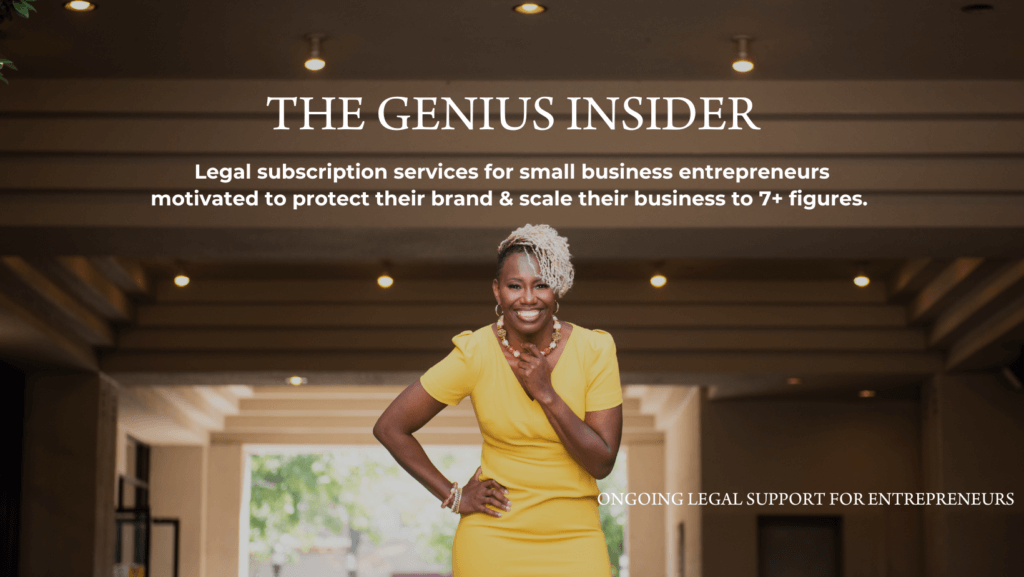So Tiny and T.I. were in court again. Let me just say this. I don’t know. When I think about T.I., I think about me and my 20’s and my blue Beatle, zooming from Birmingham to Atlanta. Hang out with my friends that live there and just having a good time. I remember my friends say Dina introduced me to T.I. cause I had no idea who that rapper was, but the, I’m Serious album the CD back then. Oh my gosh. It was on heavy rotation in that Beatle and I had a turbo Beatles. So it was like baby blue, and when you hit a certain speed, the little wing would pop out.
Tiny and T.I. were in in court again all the time for various things it seems like. But this time, this time they were in court due to a lawsuit concerning the girl group, the OMG girls that were created and managed by Tiny, I wanna say back around 2015, no, about 2009.
So there have been headlines of trademark infringement and copyright infringement and honey, all I have to say is the streets do not know what’s going on, but I do.
Welcome to episode 123 of the Own Your Genius podcast. What better way to come back off our first series than with a little legal tea. So for those of y’all who are unfamiliar with the legal tea, it’s when we discuss pop culture, but from a legal view. And today’s tea is hot, but first we’re gonna give you a little background.
So Tiny created the Girl Group, OMG Girls. In 2009, the members included her daughter, I think little Wayne’s daughter and a couple other girls that kind of rotated in and out throughout the group’s lifespan. So OMG stands for Officially Misguided, and they were known for wearing like different colors in their hair, like, pink, purple, turquoise and having really cute outfits and just being, you know, a girl group, like just teenage girls, and actually teenage pretty girls, right? So this group was active between the years of 2009 and 2015. So that’s the backstory on the OMG Girls.
Now let’s talk about these dolls. The dolls were part of a series. From the LOL dolls and those original dolls, the LOL dolls were released in 2016. And then the sub-brand, the OMG Dolls, which stands for Outrageous Millennial Girls, were released in 2019.
So by this time, the OMG Girls irl Group were no longer active, but the OMG Dolls were considered like the big sisters of the LOL doll. So the LOL doll, they were small, like miniature, and then you had the OMG dolls, and both dolls were created by the same company that created the Bratz dolls. So I know the Bratz dolls because my oldest kid, that was around the time that she was playing with dolls, and I remember looking at these dolls and I was like, no. When she was tiny. When she got a little older, yes. But I was like, oh, these dolls are doing way too much.
Anyway. Back to what we’re talking about. So shortly after the OMG Dolls were released, Tiny and her daughter, they went to social media and they were like, don’t these dolls look a little familiar? So they were asking their fans if they thought the dolls reminded them of the OMG girls.
And so in order to avoid any type of backlash, MGM entertainment, those are, that’s a company that actually manufacturing created the dolls. They responded to that inquiry, that Tiny and T.I. They were making a lot of noise about these dolls looking like this group. So they went to court in, in December, 2020, and they filed, they asked the court for a declaratory judgment and declaratory judgment that the dolls did not infringe on the former’s girls’ intellectual property right and or those of you who do not know, decor, declaratory judgment is when a party asked the court to issue a binding, binding as to like the legal obligations between the parties to another. So it’s not that MGM Entertainment was suing Tiny and T.I. They went to the court and said, Hey, are we like, these are the facts. Are we in fact infringing on their intellectual property rights? And that’s, that’s what that case was. And the reason I think they did that is because they wanted to get ahead of any potential backlash that could happen from social media with Tiny and her daughter going on social media and making these allegations.
They wanted to be able to say, Hey, we’re not doing that, and have legal backing and support to their claim, you know, to support what they’re saying. But in response to MGM’s Declaratory judgment lawsuit, Tiny and T.I. they responded. And they responded with the lawsuit of their own. And in their lawsuit, they allege misappropriation of their name, likeness and trade dress infringement and unfair competition. Honey, their main complaint was that the dolls were intentionally designed to look like members of the band. And that lawsuit was filed as a, as a counterclaim, and they had to do that. So it’s not like Tiny and T.I. could let this declaratory judgment just go to court and say nothing. Right. And then come back at a later time and allege that, Hey, you know what? You were infringing on our rights and whatever claims that they had. So a counterclaim is filed by the defending party. After the opposing party has filed the original complaint, the claim’s gonna relate to the same facts as the original complaint. So in this case, the whole issue of whether or not the dolls were infringing on the girl’s intellectual property. So those were the the facts. So in response to that, that’s why Tiny and T.I. made those other allegations, and then they, you can notice they’re all around the. Same facts of the declaratory judgment or the original lawsuit. And if a counterclaim isn’t filed and the defendant can’t file a lawsuit at a later date surrounding those same facts, so the court is basically like, Hey, we’re here for this matter right now. I don’t, I don’t want to hear about it two, three years or months down the line. This is the time that we’re gonna talk about it right now.
Anywho, these are some pretty big allegations that are being made by Tiny and T.I. and we’re not here, like I’m not here. The legal tea is not here to determine the right or wrong of the situation, but there seems to be a lot of confusion about the lawsuit and what it’s actually about. But we’re here to help you understand the situation. Hopefully help you avoid it in your own business. You ready? Let’s get into this tea.
And we’re gonna start with the name and likeness claim. In most states, we as people, we have a right to prevent other people from using our likeness for commercial purposes, and it’s called the right of publicity, and you don’t have to register it anywhere. It’s just, it’s a right that you have. It’s not reserved for just your physical appearance, though. It covers your name, your voice, and any characteristics that can identify you. The right of publicity is not federal, like trademarks and copyrights, which means the laws will vary state to state. In some state, the rights are reserved just for public figures. But in other states, everybody just, you know, people like you and me, we have those same rights. And again, the rights, the law varies, but overall, what you need to be able to prove is. That the defendant used your identity or persona, that that appropriation was to the defendant’s advantage, whether it was commercial or otherwise, and that you didn’t give consent for them to use your identity, and that’s what you need to be able to show in order to prove that your right of publicity was violated. One, that the defendant used, your identity or persona that use was to that defendant’s advantage, whether it was commercially meaning they got paid for it or otherwise somehow benefited from using your identity, and three, did not have your permission to use your persona or our identity. So the question here is, so if T.I. and Tiny are alleging that there was a misappropriation of the girl’s likeness and name and things of that nature, that’s the question.
Did the dolls use the defendant’s identity or the persona? The dolls may not have look like, like physical features may not have looked like the girl groups that if you look at pictures, there’s some pictures that are floating around on the internet. The girls had the dolls had similar hairstyles as the girls. Their wardrobes were the, were similar or some, and in some cases the same. And I saw somewhere where they were legend at the names of the dolls. Each doll has its own type of, you know, names. They were saying the names were similar to the girls. Right? So I don’t know.
And apparently this isn’t the first time that this company has been accused of profiting off a black female artist off the likeness and being alleged for cultural appropriation. And actually that cultural appropriation was the foundation of Tiny and T.I.’s case. So much so. Did y’all know this, that the first case was actually declared a mistrial? Because there was some testimony that wasn’t supposed to get in relating to cultural appropriation, but if someone end up saying it anyway, and the judge found that the jury couldn’t unhear it, so they declared a mistrial. And according to Bloomburg law, which is where I got. Background for this case, like the case was full of racial allegations on the part of Tiny and T.I. They were accusing MGM of profiting off of black people. It happens and we know it happens, right? So that’s the name and likeness. So the name and likeness is under Rite of publicity and those are the things that they had showed for that.
The next allegation of trade dress infringement, I think there was. Particularly interesting. So trade dress is a form of trademark protection that refers to like the overall appearance and image of a product or service. And I’m like, okay, okay, I see where you’re going with this. Thank Nike. So Nike has trade dress protection for shoes. Apple has trade dress protection for their stores and also for their phones. Oh. And actually, I don’t know if they have the four of the phones anymore. Yeah, they have it full of phones. And also for, I remember I had the, the old school classic iPod, the big one that held all the music. And I say I had it. I still have that somewhere laying around. But anyway, that’s also protected by trade dress. And even some restaurants have trade dress protection for their stores. Like when you walk into a Waffle House, like all Waffle Houses look alike. Right. And sometimes when you have a new construction of a restaurant, you can tell what it is, even put anything up. So being able to, identify and distinguish that restaurant from another restaurant simply by the way that it’s shaped. That is trade dress. And so the elements for trade dress protection is the same as trademarks. It has to identify the source of a good or service that good, or service has to be available in commerce and it has to be unique.
In addition to that trade dress protection, the thing that that’s being alleged to be trade dressed also has to be non-functional. I mean, it can’t work like it. It is not a pattern. So it’s not that you’re protecting like a function of it. It’s something that’s being. And used to identify. So it has to be non-functional and it has to acquire distinctiveness, meaning that when consumers see it, they actually think of your particular good or service. Because when it comes to trade dress, it could take a minute for people to recognize that, oh, all these stores look alike. So that’s just trade dress.
So I think that the trade dress was a very interesting claim to make because Tiny and T.I. were alleging that something about the girls look was so distinctive that people recognized it to identify that group.
But I, I wanna say this though. Trade dress, just like with trademarks that elements can’t change. Right? And we see this in, the best example I can give is like logos. But when a business makes even the slightest change to their logo, the previous version of the logo is no longer protected if it’s not being used. So when you’re talking about trade dress as relates to this girl group, and they do have distinctive features like their hair and what they wear, but their hair changes, their clothes change, and so you can’t get trademark protection for essentially an idea like the theme of it. It has to be this is our look, this is what we do. This is how we are every time we go out. And I don’t know if they have that.
Okay, so the final allegation, and lemme go back. You guys can tell me if they did, cuz my girls weren’t really listening to that music around that time. They’re varying ages. So I think we just, we missed that window. Final allegation. The final allegation is that, the final allegation that Tiny and T.I. made against MGM was unfair competition. And while unfair competition is usually associated with intellectual property, it actually encompasses more. Unfair competition is gonna refer to the unethical deception of businesses. Unfair competition refers to unethical or deceptive business practices, unemployed by a company to gain an unfair advantage over its competitors.
So this involves actions that go against the priciples of airplay, honesty and integrity in the marketplace, and unfair competition can harm other businesses, consumers, and really just the overall functioning of the market due to the very nature, right? So an example of unfair competition will be false advertising, you know, making false or misleading claims about a product or a service in order to what? Deceive consumers. And when you deceive consumers, you’re gonna gain that competitive edge cause they’re gonna come to you and spend money thinking one thing, but it’s actually another. So it’s gonna give you an unfair advantage.
Price fixing, that’s when competitors, they actually work together to manipulate the prices and eliminate competition leading to artificially inflated prices and reduce consumer choices. So, hey, we’re gonna get together and we’re gonna make the price, one price. Make it so that everybody needs to come to us and then these other people aren’t gonna be able to sustain their businesses so they’re gonna go out of business and then we can control the market.
Employee poaching, and you’re like, wait a minute, if another business wants to hire me for my skills, that’s unethical. Well, what’s unethical about, it’s all gonna be the tactics that’s used to recruit and hire key employees from a competitor, such as offering excessive conversation or incentives or just using confidential information to get those people over.
Another form of unfair competition is misleading comparative ads. So we see all the time when you’re like, when compared to, you know, our product is better when. Compared to X. Sometimes the way that the ads can be made or presented is false or misleading. And if that’s the case, then that’s unfair competition. So one of the things you need to know is unfair competition practices, they’re regulated by federal and state laws.
I know, I, I feel like they did a good job of having somewhat relevant in creative claims, but I just don’t know if they had the proof to support them, and obviously they didn’t because they were unsuccessful in the lawsuit. You know, they lost their trademark comp lawsuit or the copyright lawsuit when in reality it wasn’t any of those things. It’s a combination of some stuff, but it wasn’t just that. I don’t know. Tell me what you think, knowing what you know now, do you think the court’s got it right?








Responses